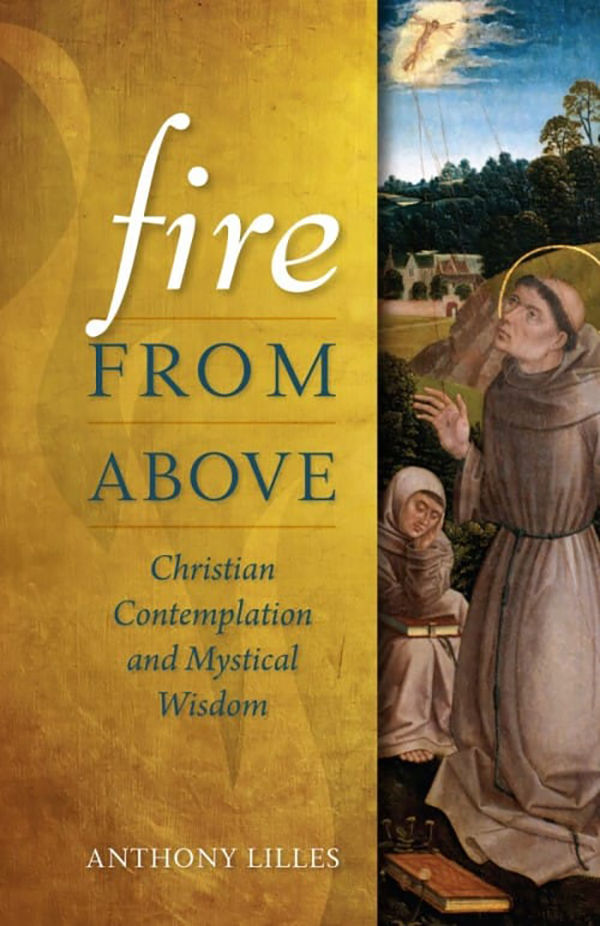“As the third millennium unfolds, the world needs the wisdom that the tradition of Christian prayer offers,” Anthony Lilles writes in “Fire from Above: Christian Contemplation and Ethical Wisdom.”
“Our faith in Christ Jesus opens up real access to the wisdom of God in a way no other philosophy or religion claims to do. Our faith proposes the way of true communion with one another and with God. It does not offer mere information about God, but an encounter with God himself through the Risen Lord, who is at work in the world.”
As some of the most dramatic days in the Christian calendar approach, how can we better live the life of prayer that the world needs? In an interview, Lilles, academic dean of St. John’s Seminary in Camarillo, delves into the question.
Kathryn Jean Lopez: “We are not alone; we are loved and cherished,” you write. “We do not suffer alone; the Lord suffers with us. This is true no matter what we have done or what has happened to us. We have not been forgotten or abandoned. We are remembered, and God has implicated himself in our plight. Our lives are not meaningless. Our lives count. No life is a mistake. Each and every life is part of an exquisite plan of unfathomable goodness. We are desired and unimaginably loved by God.” How can you be so sure?
Anthony Lilles: This is absolutely true. It is the teaching of the Church and passed on to us through the Bible, “I in them and you in me — that they may be perfectly one, so that the world may know that you sent me and have loved them just as you have loved me.” This mystery of communion is what we celebrate in every sacrament. It is the reason that we gather for the Mass and the reason we dare to go to confession. It is what every sacramental marriage is meant to signify. It is the last thing that the Church wishes a soul to know as it prepares for its final journey to the house of the Father.
Lopez: I know Mother Teresa said it all the time and you cite St. Thérèse of Lisieux on the topic, but why would Christ ever thirst for us? Aren’t we supposed to be the people who left him thirsting on the cross only to give him vinegar or egg, that kind of treatment alone?
Lilles: To understand the thirst of Christ on the cross, we must look to see where he first begins to manifest that thirst in the Scriptures. In fact, it is when he is with the “woman at the well” that he first discloses his thirst. She was culturally and ethnically alienated from him, yet he approached her anyway with his thirst. Why? It is as he told her, “If you knew the gift of God…” His thirst solicits our thirst for him and at the same time quenches it — because he is the source of living waters.
Lopez: Why does mysticism sound so mysterious? So foreign? So impractical?
Lilles: In part because these terms have been co-opted by various esoteric sects, or else commercialized to market exotic forms of spirituality. The mystical life however is a life in union with the mystery of Christ through the holy mysteries (the sacraments) into unity with the mystery of the Holy Trinity. This kind of mysticism speaks to the very heart of Christian holiness and progresses by way of the cross — sacrifices, renunciation and the patient bearing of hardship for love of the God and for our neighbor.
Lopez: Why do mystic writers use “ineffable” so much. Do we need to update language?
Lilles: It is because God’s love is beyond the limits of human speech to convey. It is too immense to conceive — every description and definition always falls short for the mystery is too august. Yet they cannot not speak of it — because it is so beautiful and they yearn that others might glimpse the beauty of the one who has changed everything for them.
Lopez: How are men, especially, expected to relate to the bridal character of the soul with God?
Lilles: This is a tough question. Traditionally, not all spiritual authorities use this imagery, at least in the beginning, with men. Yet the fact remains that Christ is the bridegroom of the Church, and by baptism we have been implicated in this ecclesial reality. This is why Bernard of Clairvaux will provide his commentary on the Song of Songs for the Cistercians — men can benefit from it. One way to look at it is as members of the Church; we are all part of the mystery of the bride — the beloved of Christ.
Although the bridal mystery is not directly part of a man’s experience, it is true that every man has seen the joy on the face of a bride on her wedding day — and her total devotion to her bridegroom. To recognize this kind of devotion and to realize that somehow my own devotion should not be the less — this seems to be a good starting point for entering into this bridal mysticism as proposed by St. Bernard and others.

